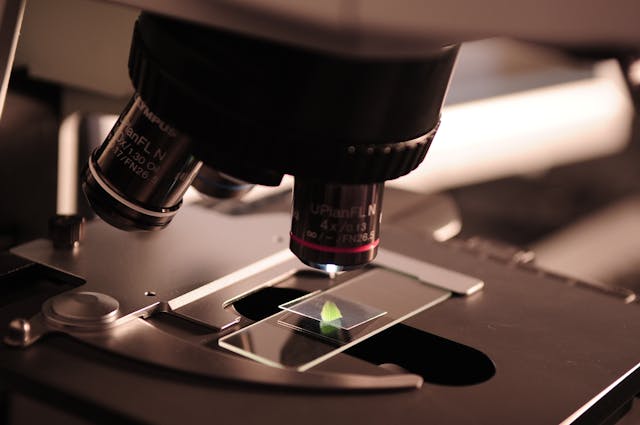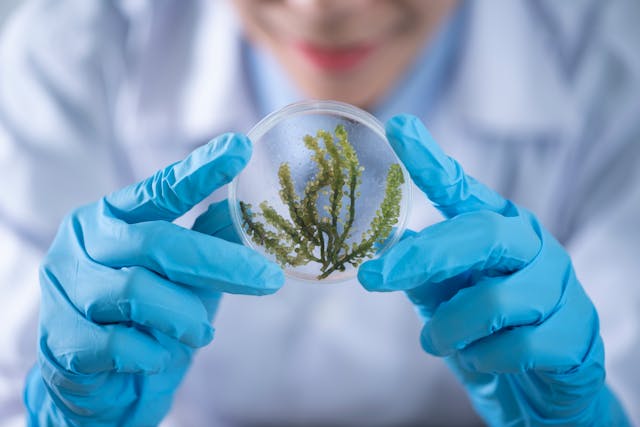Microbiology: The World of Microscopic Organisms
Microbiology is the study of microscopic organisms, which include bacteria, viruses, fungi, and other microorganisms. These tiny life forms are all around us, living in the air, soil, water, and even inside our bodies. Despite their small size, microorganisms play crucial roles in maintaining the balance of life on Earth. In this article, we will explore the fascinating world of microbiology, the importance of microorganisms, and how they impact our daily lives.

What Are Microorganisms?
Microorganisms, also known as microbes, are living organisms that are too small to be seen with the naked eye. These organisms are typically studied under a microscope and can be found in almost every environment on Earth. There are several types of microorganisms, including:
Bacteria
Bacteria are single-celled organisms that can live in a wide variety of environments, including extreme ones like hot springs and deep ocean vents. Some bacteria are harmful and cause infections, while others are beneficial, helping with processes like digestion and nutrient recycling.
Viruses
Viruses are even smaller than bacteria and can only reproduce inside the cells of a host organism. While some viruses cause diseases like the flu and COVID-19, others are harmless or even beneficial, playing a role in regulating bacterial populations.
Fungi
Fungi, such as molds and yeasts, are organisms that thrive in moist environments. Some fungi are important for decomposition and breaking down organic matter, while others can cause infections in humans and animals.
Protozoa
Protozoa are single-celled organisms that often live in water or soil. Some protozoa are harmless, but others can cause diseases like malaria and amoebic dysentery.
Algae
Algae are plant-like microorganisms that can photosynthesize and produce oxygen. They play an important role in ecosystems by producing oxygen and serving as the base of the food chain in aquatic environments.
The Importance of Microorganisms
While many people associate microorganisms with disease, they actually play essential roles in both natural ecosystems and human life. Below are some of the key contributions of microorganisms:
Environmental Role
Microorganisms are critical to maintaining ecological balance. For example, bacteria and fungi decompose organic matter, recycling nutrients back into the environment. This process is essential for soil health and plant growth. Additionally, microorganisms like algae produce oxygen and contribute to the carbon and nitrogen cycles.
Health and Medicine
Microorganisms are involved in many aspects of human health. Some bacteria help with digestion by breaking down food in the intestines. In medicine, certain microorganisms are used to produce antibiotics, vaccines, and other treatments. For example, the antibiotic penicillin is derived from the mold Penicillium.
Biotechnology and Industry
Microorganisms are widely used in biotechnology for applications like fermentation, which is used in the production of food and beverages such as bread, yogurt, and beer. They are also used to produce biofuels, enzymes, and even medicines. Genetic engineering often involves modifying microorganisms to produce valuable substances or solve environmental problems, such as cleaning up oil spills.
Food Production
In addition to fermentation, microorganisms play a role in food preservation and flavor development. Lactic acid bacteria, for example, are responsible for fermenting dairy products like yogurt and cheese. Other microbes are used in the production of pickles, sauerkraut, and other fermented foods.
Microbial Infections: The Harmful Side of Microorganisms
While many microorganisms are beneficial, some can be harmful and cause infections. These harmful microorganisms are known as pathogens. They can enter the body through cuts, contaminated food or water, or respiratory droplets, leading to a variety of illnesses.
Bacterial Infections
Bacterial infections can cause conditions such as pneumonia, tuberculosis, and strep throat. Some bacteria are resistant to antibiotics, making treatment more difficult. It is important to use antibiotics responsibly and only when prescribed by a healthcare professional to prevent antibiotic resistance.
Viral Infections
Viruses are responsible for many common illnesses, such as the common cold, influenza, and COVID-19. Unlike bacteria, viruses cannot be treated with antibiotics, so antiviral medications or vaccines are often used to manage viral infections.
Fungal Infections
Fungi can cause a range of infections, particularly in individuals with weakened immune systems. Examples include athlete’s foot, ringworm, and more serious infections like histoplasmosis, which affects the lungs.
Protozoan Infections
Protozoa are responsible for diseases such as malaria, caused by the parasite Plasmodium, and giardiasis, a diarrheal illness caused by Giardia.
The Role of Microbiology in Medicine and Research
Microbiology is a key field in medical research, helping scientists understand how diseases spread, how pathogens interact with the human body, and how to prevent and treat infections. Researchers study microorganisms to develop new vaccines, antibiotics, and treatments for infectious diseases.
Microbial Diagnostics
Microbiologists use various techniques to identify and classify microorganisms, including culturing microbes in laboratories, DNA sequencing, and immunological tests. Accurate diagnosis of infections is essential for providing appropriate treatment and preventing the spread of diseases.
Antibiotic Resistance
One of the biggest challenges in modern medicine is antibiotic resistance. Overuse and misuse of antibiotics can lead to the development of resistant bacteria, making infections harder to treat. Microbiologists are working to develop new antibiotics and alternative treatments to combat antibiotic-resistant infections.

Vaccine Development
Vaccines are one of the most effective ways to prevent infectious diseases. By studying microorganisms and understanding how they interact with the immune system, microbiologists can create vaccines that help the body fight off infections before they cause harm.
The Future of Microbiology: Emerging Trends and Challenges
As technology advances, the field of microbiology continues to evolve. Researchers are using new tools and techniques to explore microorganisms in greater detail and discover new ways to harness their potential.
Genomics and Microbial Ecology
Genomic sequencing has allowed scientists to study the DNA of microorganisms in unprecedented detail. This has opened up new possibilities in areas like microbial ecology, where scientists explore the relationships between different microbes in natural environments and their roles in health and disease.
Synthetic Biology
Synthetic biology is a field that involves engineering microorganisms to perform specific tasks, such as producing biofuels, medicines, or cleaning up environmental pollution. This technology has the potential to revolutionize industries and address some of the world’s most pressing problems.
Climate Change and Microbial Impact
Microorganisms also play a key role in the response to climate change. As the planet’s temperature and environmental conditions shift, microbes are likely to adapt, with potential implications for human health, agriculture, and ecosystems. Researchers are studying these effects to better understand how to mitigate risks.
Conclusion: The Wonders of the Microbial World
Microbiology is a fascinating and essential field of science that continues to impact our daily lives in countless ways. From the beneficial microorganisms that help with digestion and food production to the harmful pathogens that cause disease, microbes are both our allies and our adversaries. By studying and understanding these tiny organisms, scientists can continue to make breakthroughs in medicine, biotechnology, and environmental science, improving the quality of life for people around the world. The microbial world may be invisible to the naked eye, but it is undeniably powerful and crucial to life on Earth.





























